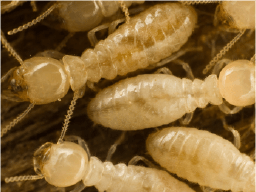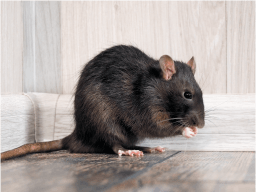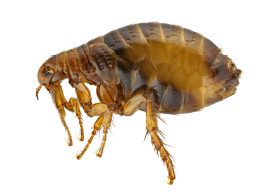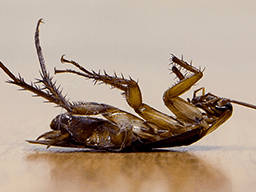Bed Bug Services
Waking up to a bed bug infestation is a real wide-awake nightmare. These pervasive pests are hard to find and even harder to get rid of. Here’s what you need to know to keep your home bed bug free so you can rest easy.
Call 855-891-5410 NOW to get started.
Schedule Today!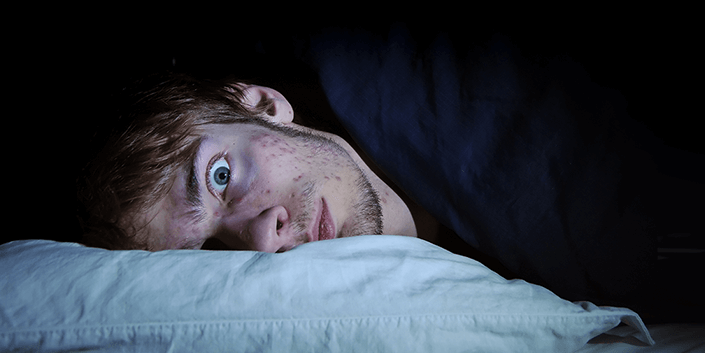
What Are Bed Bugs?
Almost all bed bug infestations are attributed to just two species: Cimex lectularius (the common bed bug) and Cimex hemipterus (a tropical variety.) They are small, with adults reaching a maximum length of only 5 millimeters, and lay eggs no larger than a grain of rice. The adults are reddish-brown, wingless, flat, and oval-shaped, while the nymphs are more yellow and transparent. They lay eggs in clusters and the juveniles go through several molting cycles on their way to reaching adulthood, during which they will cast off their exoskeletons leaving these and fecal wastes in whatever space they inhabit.
Where Do They Live?
Bed bugs can be found over most of the world and have been a common human parasite for thousands of years. It is a myth that bed bugs only take up residence in dirty homes or on dirty people, though keeping your sheets and mattress clean can keep them from getting out of control. Anyone can bring home bed bugs from infested hotels, old furniture in other’s homes, or even vehicle upholstery. The key to getting rid of them is to never give them what they want when they arrive.
What Do Bed Bugs Eat?
Bed bugs want one thing: blood. Any blood will do, so pets are not immune from these nighttime biters. Unlike fleas though, bed bugs do not like to live on their hosts, preferring to nest in warm dark spaces with easy access to their next meal. A single bed bug only needs to feed every 100 days or even longer but may make several bites in a row when it is ready to feed. This is why it can be hard to tell that you even have an infestation since the bugs aren’t biting every night or even all on the same night.
How Do You Treat Bed Bug Bites?
The bites left by bed bugs closely resemble mosquito bites with similar itchiness and redness. Though they do not transfer disease, some people do suffer allergy-like symptoms from the bites. They rarely require professional treatment from a doctor, responding well to over-the-counter antihistamines and mild steroid ointments.
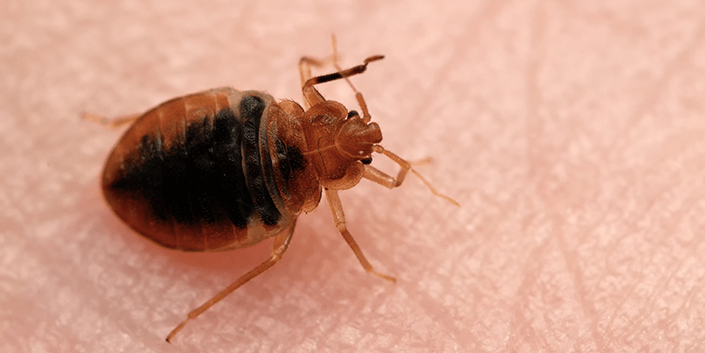
How Are They Harmful?
Aside from the general irritation from the bites themselves, there are a few other reasons bed bugs are harmful. Bed bugs molt five times in their life cycle leaving their discarded exoskeletons behind each time. This debris, along with fecal wastes, is a breeding ground for bacteria, which is particularly harmful if it comes into contact with broken skin from bites. Scratching can also introduce bacteria to the body and promote infection. And while the amount of blood bed bugs are able to consume from a healthy adult human is of little concern, it is much more dangerous for infant animals.
How do I know If I Have Them?
Look for these tell-tale signs that you’re sharing a bed with bed bugs:
- Crusty brown debris around mattress seams (shed exoskeletons)
- Small black and brown spots (bed bug fecal matter)
- Clusters of white eggs that resemble grains of rice
- Mosquito-like bites in small clusters or straight lines Spots of blood under where you sleep
How Do I Get Rid Of Them?
Getting rid of bed bugs isn’t a simple task. Often, multiple methods will need to be used to completely eradicate them, this is why it is recommended to involve professionals as soon as possible to get the problem under control. Experts will combine suction removal, high-heat treatments, and gentle non-toxic insecticides to kill the bugs at every stage of their development. And they won’t stop with the bed — professional pest control experts will scour every part of your home for any sign of these stubborn critters and wipe them out.
If you are in need of a certified pest control expert in your area to help rid your home of bed bugs or other unwanted pests, check out our list of preferred providers and give them a call today.





